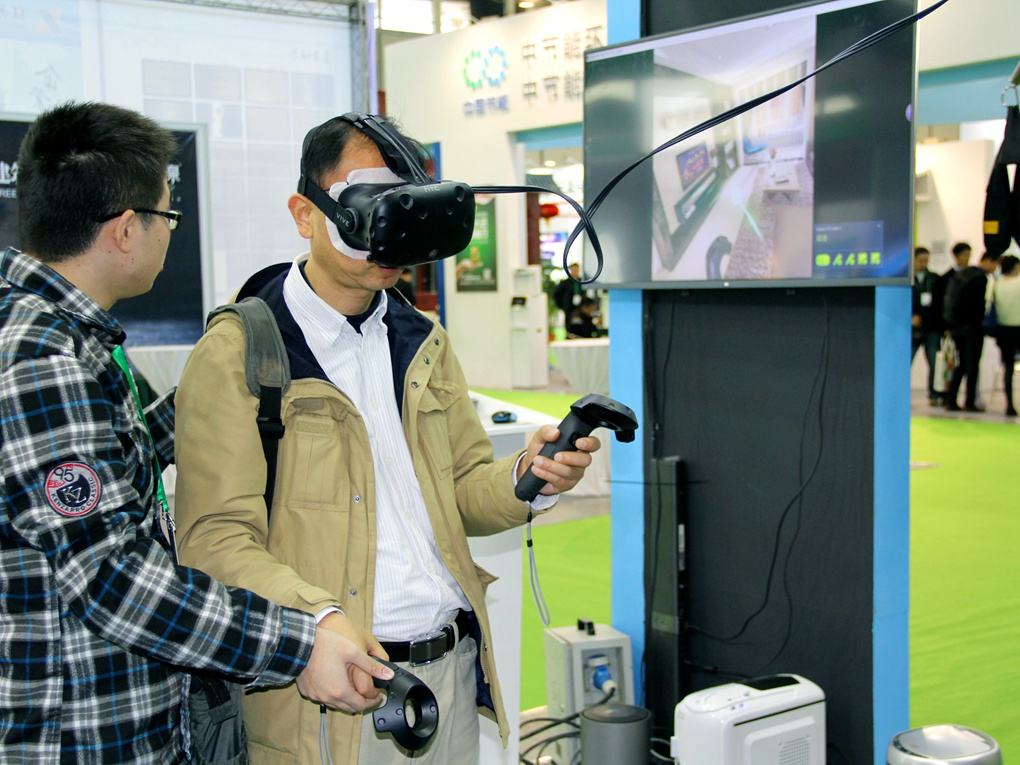03:36

Home sales in China were dealt a huge blow in the first quarter as transactions plunged up to 60 percent in most regions. However, the sector is trying to embrace the biggest wave of digitalization ever, as VR viewings, livestreaming and online home sales are being rapidly accepted by buyers and realtors.
Virtual reality is the new reality for China's housing market. With social distancing and living complexes' restrictions on visitors, pent-up buyers have quickly fallen in love with this immersive way to search for a home. Housing platform Beike's data shows VR viewership of its listings has spiked 3.5 times in recent weeks compared to last year's average.
"The epidemic has greatly accelerated the digitalization of housing sales. We see great changes in how customers view, select and buy homes, and how agents engage with customers. And both sides are learning the new way very fast. So far Beike has built VR for four million homes. And home buyers have viewed them 660 million times. VR viewing proves very user-friendly and buyers spend 50 percent more time on each home than before," said Stanley Peng, Beike's CEO.
The conventional way of buying a home could involve buyers visiting multiple listings during their limited weekend hours, and agents repeating information to different buyers. Now digital data, including VR and live streaming, makes life easier for everyone. Buyers can view more homes online before they visit, and agents can serve more customers online during the week.

A consumer experiences viewing the house via VR equipment, Nanjing, China's east Jiangsu Province, November 3, 2016. /VCG
A consumer experiences viewing the house via VR equipment, Nanjing, China's east Jiangsu Province, November 3, 2016. /VCG
Beike says an integrated digital housing platform is needed as part of the sector's infrastructure. That's so that sales agents from different companies can upload their housing data.
"In the past few years, Beike has built the world's biggest VR database of 4 million homes. And our data is expanding every day. This digital service has transformed housing sales fundamentally. For home buyers, they can view, select and purchase houses all on our platform. For housing agents, they can meet customers online, answer questions online and make deals online. Everything can be digitalized. Efficiency is greatly improved," said Peng.
Experts said virtual tours are well-suited to the Chinese market as the country's smartphone user numbers top the world at 900 million, and people are digitally savvy. Now millions of homes have been virtually navigated and tens of thousands sold online. The digitalization of China's housing market is irreversible, even after the pandemic.
"The digital age that we are living in is creating many opportunities. Digitalization is also a long-term solution to all kinds of business uncertainties, such as the current pandemic," said Professor Chen Chunhua of National School of Development, Peking University, "A digital housing platform connects users and products directly, so it reduces costs and improves efficiency, and is helping the industry to grow in the right direction."
There are four key areas to a happy life for most Chinese: clothing, dining, housing and traveling. Digitalization has already moved into the clothing, dining and travel sectors, where consumers can easily make purchases online. Experts say the time has come to also digitize the housing market, the biggest expenditure and investment for everyone in China.
Read more: How are VR and live streaming helping China's housing market during the epidemic?